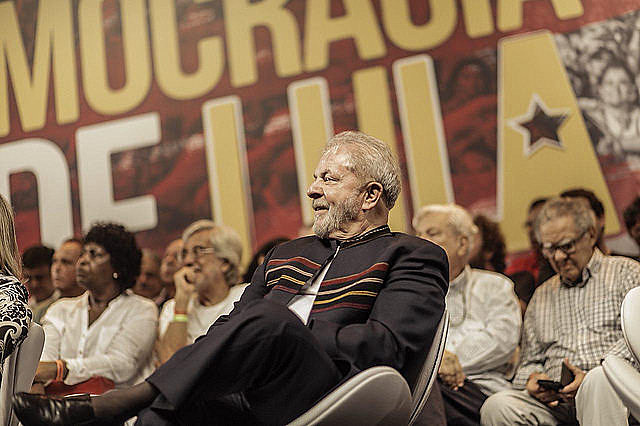A Brazilian court is scheduled next Wednesday to rule on a legal appeal filed by former President Luiz Inácio Lula da Silva against a corruption conviction issued by a federal judge last July.
Prosecutors claim that after leaving the presidency, Lula da Silva allegedly accepted US$ 1.1 million in bribes from the construction company OAS to pay for the remodelling of a beachside apartment in Guarujá, São Paulo state. Since 2016, Lula has been under investigation as part of the anticorruption campaign known as Operation Lava Jato.
Yet, out of the 73 witnesses to take the stand, not a single witness for the prosecution provided concrete evidence linking the apartment to the former President. There have only been confirmations that Lula visited the apartment on one single occasion.
Leading up to the court ruling, various high-profile public officials and legal experts have issued statements of support for the former President, arguing that the charges are politically motivated attempts to prevent him from running for re-election in the 2018 October general elections.
The recent criticisms have raised serious concerns about the biased nature of the Brazilian judicial system. Institutions and individuals across the political spectrum have questioned the legitimacy of the legal proceedings against Lula da Silva.
According to a recent study from think-tank Fundação Getulio Vargas, just 29 percent of Brazilians trust their country’s legal system, which is one of the fundamental pillars of a democratic society.
“What is at stake here is the legitimacy of Brazilian democracy. But not only that, the weakening of Brazilian democracy would undoubtedly have negative implications on global democracy as whole,” Brazilian Senator Roberto Requião (MDB-PR) told Brasil de Fato in an interview.
Former Minister of Justice Eugênio Aragão echoed similar sentiments in a recent interview for Brasil de Fato stating that “the outcome of this trial is not about securing Lula’s Presidential candidacy. It’s about about defending Brazilian democracy.”
“Therefore, January 24th will be an incredibly important date because the scheduled mobilizations are in defense of Brazilian democracy and the future of the country,” Aragão added.
The trial of Brazil’s former President, who is currently leading all presidential opinion polls, is guaranteed to draw huge demonstrations of support outside the court of appeals where his trial will take place.
If the appeal is upheld it will only sharpen the sting that has been inflicted by the supporters of corrupt political officials on large segments of Brazilian society.
However, even if Lula is convicted for a second time, the former head-of-state can still submit his candidacy for the 2018 Presidential elections. The practicality of enforcing the court ruling is complicated by various legal technicalities that are provided to any defendant in order to postpone the application of a guilty verdict.
Only after August 15, 2018 – the final date for candidate registration – will the Brazilian Federal Prosecution Office be allowed the opportunity to request the Electoral Court to remove Lula da Silva’s name from the Presidential race. At which point, the Superior Electoral Court (TSE) would be forced to decide on the matter. During this period, President Lula da Silva would be able to carry out his electoral campaign.
In an interview for Brasil de Fato, a professor of Human Rights at the Federal University of Rio de Janeiro, Carol Proner, believes that regardless of the outcome of the trial scheduled for Jan. 24, the former president will emerge victorious. She went on to say that growing support for the former president reflects popular awareness of a "blatantly unfair" legal process.
In the context of heightened political tensions, leaders from various social movements including the Brazil Popular Front (Frente Brasil Popular) have promised to hold protests in defense of the former president.




